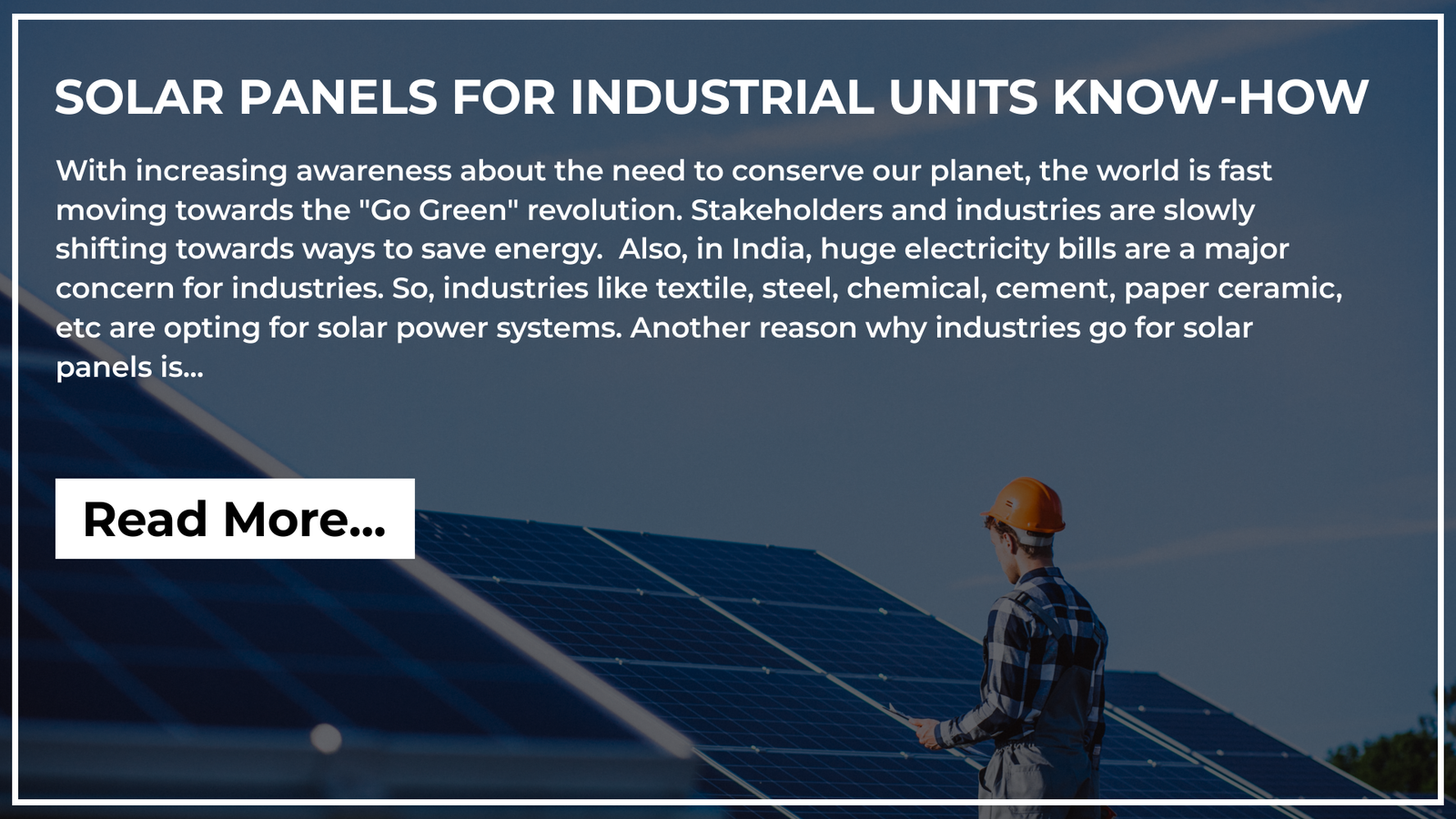Types of Solar Panels
The three types of solar panels are:
- Monocrystalline solar panels
Monocrystalline solar panels are made from about 40 of the monocrystalline solar cells. These solar cells are made using pure silicon. They provide the highest efficiency rates and thus are preferred for industrial uses.
- Polycrystalline solar panel
Polycrystalline solar panels are made of silicon too. But polycrystalline cells are made when little fragments of silicon crystals are melted. They appear blue because of the way sunlight interacts with the material. Its usage is rapidly growing as they too have a good efficiency rate.
As the name suggests, thin-films solar panels are 350 times thinner than other silicon wafers. Another distinguishing feature of these panels is that they aren’t made of silicon. They can be made from a variety of materials, including cadmium telluride, amorphous silicon, and Copper Indium Gallium Selenide.
Importance of solar panels for industries
Studies have shown that the sun’s energy if received for an hour can meet the global energy demands for a year. Thus, the importance of solar panels is quite self-explanatory. And when it comes to industries that have huge energy needs, the installation of solar panels becomes even more crucial.
- Savings on Electricity Bills
A
solar power installation may greatly reduce your electricity bills. The reduction in the bills will depend upon the size of the solar panel and its usage. An approximate 50% of reduction per month can be managed over the bills. Also, if your industry doesn’t have uniform energy requirements, you can transfer the surplus energy generated from the solar panels to the grid through net metering.
- Reduction in release of carbon dioxide
Generally, industries use non-renewable sources such as coal or fossil fuels to meet their huge energy requirements. But this leads to increased air pollution and depletion of essential non-renewable resources. Thus, installing solar power would help make the air clean. This will promote a greener, cleaner and sustainable choice. As solar panels neither make use of chemicals nor do they release any.
The government of India has made some tax reliefs on the installation of solar power systems in industrial sectors under section 32. This facilitates a higher depreciation rate also known as the Accelerated depreciation benefit. So, you can depreciate a higher capital for solar plants and avail tax benefits on the depreciated value.
Installing a solar system will help reduce the temperature of the industrial roofs by 5 degrees. This happens because solar panels reduce 30% of the energy reaching the roofs. Thus, solar panels keep the roofs clean and cool by reflecting and absorbing the sun’s energy.
Conclusion
By now, you must have understood the need for solar power systems for your industries. Thus, if you plan on having one such installation for your industry, do consider certain factors before choosing a solar system. Factors such as efficiency, cost and temperature coefficient must be considered. Temperature coefficient states the power a single solar panel loses for every degree rise in temperature. Thus, with the knowledge of the right specifications, you can opt for a cleaner and greener solution.


